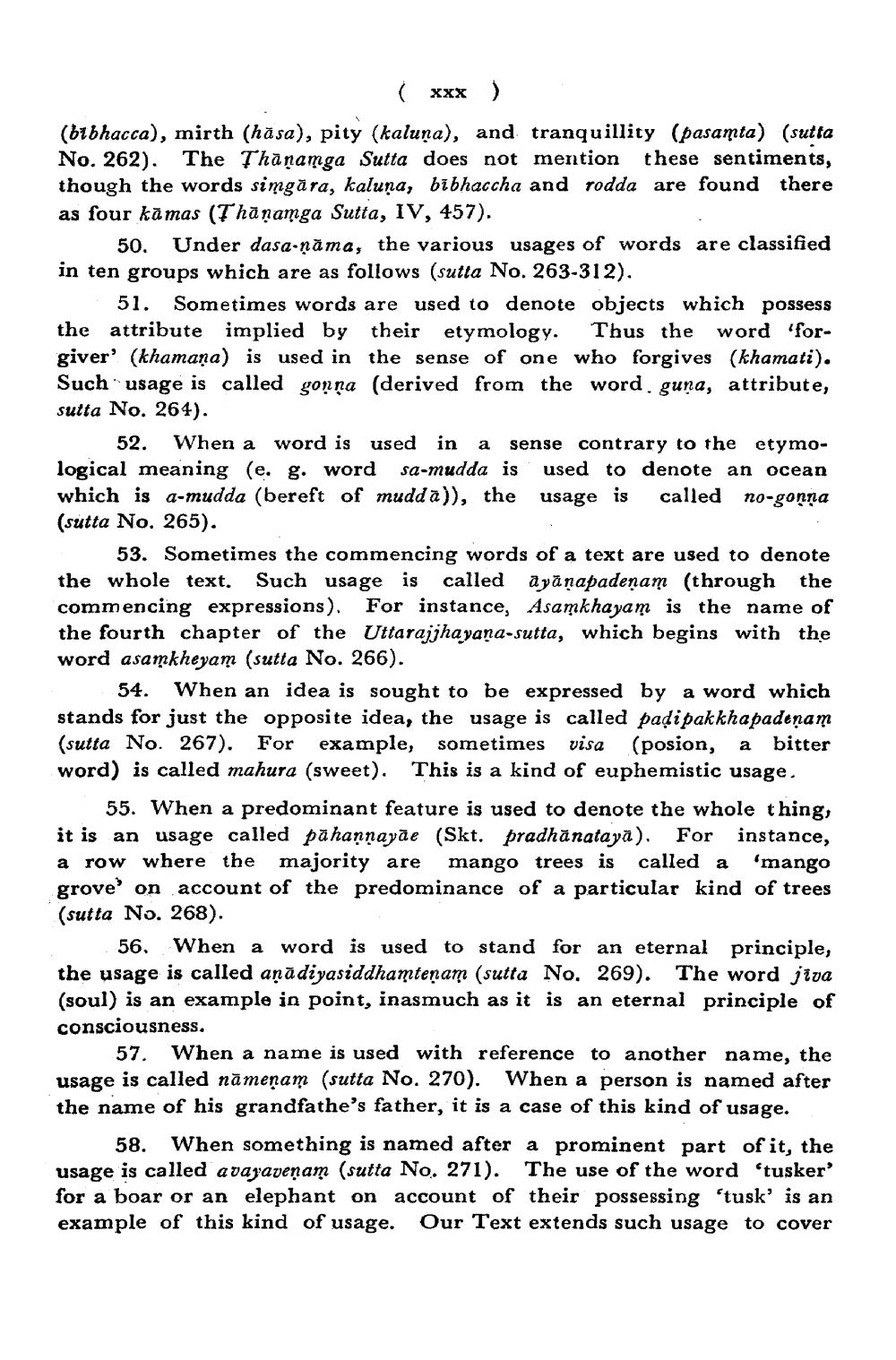________________
( xxx )
(bibhacca), mirth (hasa), pity (kaluna), and tranquillity (pasamta) (sutta No. 262). The Thanamga Sutta does not mention these sentiments, though the words simgara, kaluna, bibhaccha and rodda are found there as four kāmas (Thāṇamga Sutta, IV, 457).
50.
Under dasa-nama, the various usages of words are classified in ten groups which are as follows (sutta No. 263-312).
51. Sometimes words are used to denote objects which possess the attribute implied by their etymology. Thus the word 'forgiver' (khamana) is used in the sense of one who forgives (khamati). Such usage is called gonna (derived from the word guna, attribute, sutta No. 264).
52. When a word is used in a sense contrary to the etymological meaning (e. g. word sa-mudda is used to denote an ocean which is a-mudda (bereft of mudda)), the usage is called no-gonna
(sutta No. 265).
53. Sometimes the commencing words of a text are used to denote the whole text. Such usage is called ayaṇapadenam (through the commencing expressions). For instance, Asamkhayam is the name of the fourth chapter of the Uttarajjhayana-sutta, which begins with the word asamkheyam (sutta No. 266).
54. When an idea is sought to be expressed by a word which stands for just the opposite idea, the usage is called padipakkhapadenam (sutta No. 267). For example, sometimes visa (posion, a word) is called mahura (sweet). This is a kind of euphemistic usage.
bitter
55. When a predominant feature is used to denote the whole thing, it is an usage called pahannayae (Skt. pradhănatayā). For instance, a row where the majority are mango trees is called a 'mango grove' on account of the predominance of a particular kind of trees (sutta No. 268).
56. When a word is used to stand for an eternal principle, the usage is called aṇādiyasiddhamteṇam (sutta No. 269). The word jiva (soul) is an example in point, inasmuch as it is an eternal principle of consciousness.
57.
When a name is used with reference to another name, the usage is called nameṇam (sutta No. 270). When a person is named after the name of his grandfathe's father, it is a case of this kind of usage.
58.
When something is named after a prominent part of it, the usage is called avayavenam (sutta No. 271). The use of the word 'tusker' for a boar or an elephant on account of their possessing 'tusk' is an example of this kind of usage. Our Text extends such usage to cover




